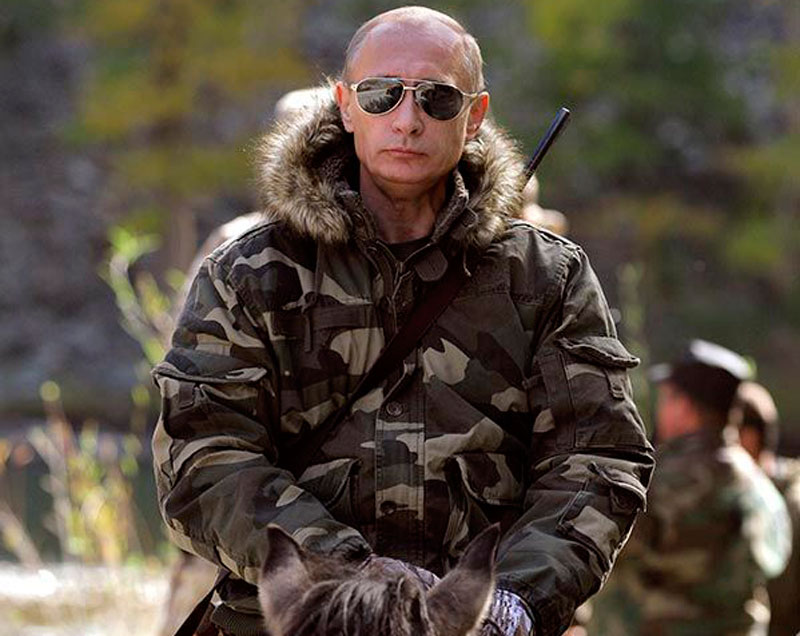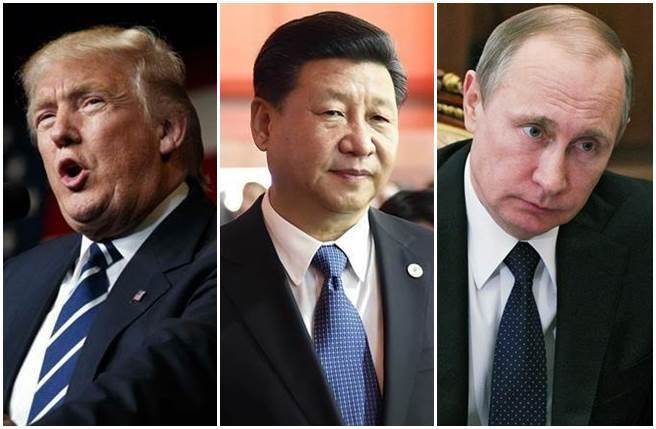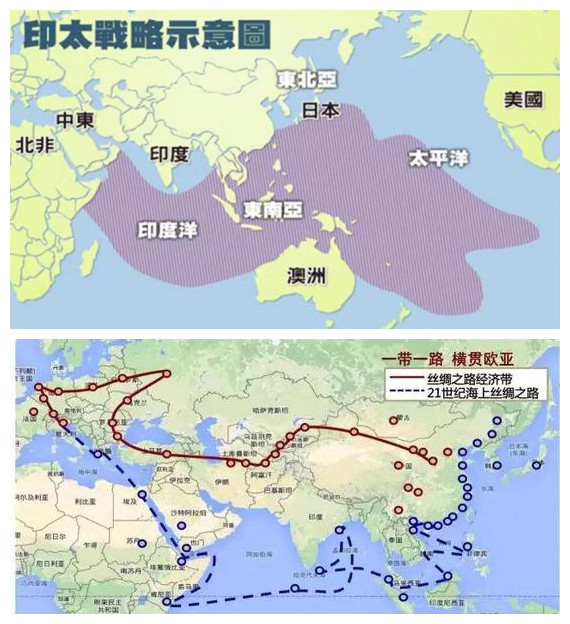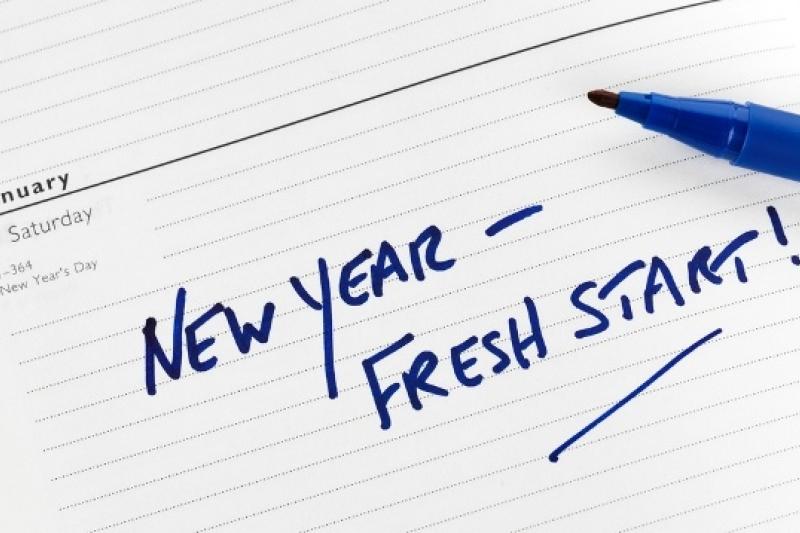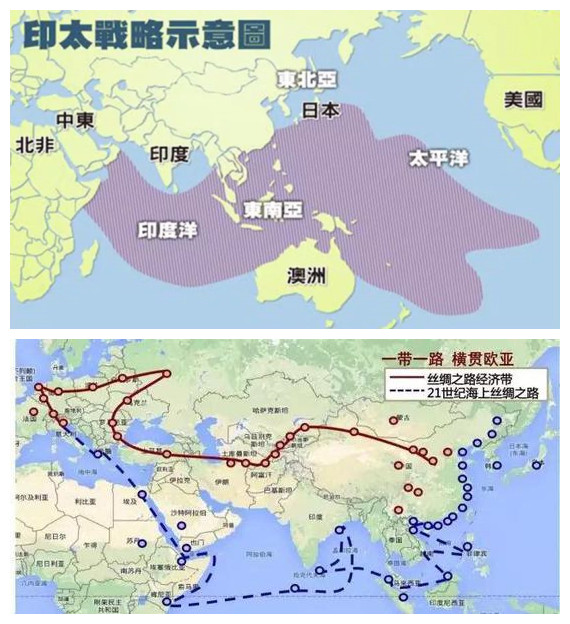

 字體:小 中 大
字體:小 中 大 |
|
|
|
| 2018/08/15 20:54:58瀏覽487|回應0|推薦0 | |
|
如何讓新俄國起潤滑的作用呢?
關於:
(5) 從 2015年開始,西方知識界已經有人意識到,西方文明已經進入由勝轉衰的轉折關頭。2017年7月,英國<金融時報>副主編馬丁‧沃爾夫(Martin Wolf)撰文指出,從各國GDP總量、儲蓄、人口變遷、技術發展、生產率、全球化(機會停滯)和收入停滯引起的民粹主義抬頭等七方面,都揭示出發達國家在全球經濟中的權重下降。(Page 238)
(6) 2017年1月26日英國首相特里莎‧梅(Theresa May)還非常勇敢地在美國費城演講中提到,由於英美對世界主權國家的政治干預失敗,「英美干預主權國家並試圖按照自己的形象改造世界的日子已經過去了。」這話其實是正式宣告:英美將終止向外推廣民主化的政治努力;這一重要姿態本應引起世界關注,卻被大多數英美媒體與中國政府完全忽視了。(Page 231)
(7) 如今,英美都準備放棄在全球推廣民主化的使命,全球化大潮已經到了回水灣;歐盟雖然還在頑強地堅持歐洲一體化的理想,但各國因「難民」的大量進入而重設邊界,隨著必將到來的歐盟各國債務危機,還有隨時可能發生的歐洲本土伊斯蘭極端主義發動的恐怖攻擊,自顧不暇,其前景清晰可見,只是多掙扎幾年,還是少掙扎幾年的問題了。
在前後四波民主化浪潮中,中國曾經趕上了第一波,於1911年美優建立了中華民國───亞洲第一個共和國;第二波民主化浪潮後中故建立了極權體制;第三波民主化當中,導致社會主義陣營垮台的第一塊多米諾骨牌,是1989年中國的「六四民主運動」;第四波,中國是旁觀者。所有這四波浪潮均有西方國家的力量在推動。如今,美歐面對西方文化自身的反叛,有點自顧不暇,暫時放棄對外推廣民主化的努力,中共政權面臨的外部壓力暫時減輕了。
百餘年來,中國曾經成功地避免過所謂「四波民主化」的衝擊,所有矛盾都在內部耗散。但在全球化的背景下,敘利亞等中東國家的矛盾向外部耗散,深刻影響了西方國家的生存。基於這一事實經驗,對中國問題的思考應該有個新視角,那就是,在中國維持這種「潰而不崩」的狀態中,為未來的社會重建多留些「資本」。在作者看來,中國最欠缺的「資本」,是具有權利意識與自由意志的國民群體。(Page 249)
@@@@@@@@@@@@@@@@@@@@@@@@@@@@@@@@@@@@@@@@@@@@@@@@@@@@@@@@@@@@@@@@@@@@@@@@@@@@@@@@@@@@@@@@@@@@@@@@@@@@@@@@@@@@@@@@@@@@@@@@@@@@@@@@
作者:高錦源
將來這個世界:
2.西方有一個美利堅合眾國,以新基督教文明統領西方世界,以北美洲及西、北、中歐洲的經濟地理為範圍:美、加、瑞典、挪、芬、冰、丹、愛沙尼亞、拉脫維亞、立陶宛、荷、魯、比、英、愛爾蘭、法、德、義、西、葡、瑞士、奧、捷克、斯洛伐克、匈,約八億人口(世界人口的12%)、約二千四百萬平方公里的土地來發展西方文明。
詳: http://www.books.com.tw/web/sys_serialtext/?item=0010644082&page=12
@@@@@@@@@@@@@@@@@@@@@@@@@@@@@@@@@@@@@@@@@@@@@@@@@@@@@@@@@@@@@@@@@@@@@@@@@@@@@@@@@@@@@@@@@@@@@@@@@@@@@@@@@@@
絲綢之路經濟帶
「絲綢之路經濟帶」簡稱「一帶」,是中共中央總書記習近平在2013年在哈薩克納扎爾巴耶夫大學作演講時提出[5],中國國務院總理李克強外訪時向各國推廣的區域經濟合作戰略[6]。沿著陸上絲綢之路,發展中國和這些國家和地區的經濟合作夥伴關係,計劃加強沿路的基礎建設[6],也計劃消化中國過剩的產能與勞動力、保障中國的能源(如哈薩克石油)與糧食供給,並帶動西部地區的開發[7]。
「一帶」連接亞太地區與歐洲,中間經過的中亞地區[6],像上海合作組織中的中國、俄羅斯、哈薩克、吉爾吉斯、塔吉克和烏茲別克都在絲綢之路上,其他5個觀察員國及3個對話夥伴也在絲綢之路沿線[7],絲綢之路經濟帶的核心區域包括西北的新疆、青海、甘肅、陝西、寧夏,西南的重慶、四川、廣西、雲南
「一帶」主要有兩個走向,從中國出發,以歐洲為終點:一是經中亞、俄羅斯到達歐洲;二是經中亞、西亞到達波斯灣和地中海沿岸各國。
21世紀海上絲綢之路「21世紀海上絲綢之路」簡稱「一路」,則是沿著海上絲綢之路,發展中國和東南亞、南亞、中東、北非及歐洲各國的經濟合作。據稱,新疆和福建會成為「一帶一路」的最大贏家,並獲得前所未有的發展機遇。福建獲批21世紀海上絲綢之路核心區。新疆被定位為「絲綢之路經濟帶核心區」。 海上絲綢之路主要會包括江蘇、浙江、福建、廣東、海南及山東6個沿海省份。
「一路」主要有兩個走向:一是從中國沿海港口過南海到印度洋,延伸至歐洲。二是從中國沿海港口過南海到南太平洋。
https://zh.wikipedia.org/wiki/一带一路
@@@@@@@@@@@@@@@@@@@@@@@@@@@@@@@@@@@@@@@@@@@@@@@@@@@@@@@@@@@@@@@@@@@@@@@@@@@@@@@@@@@@@@@@@@@@@@@@@@@@@@@@@@@@@@@@@@@@@@@@@@@@@@@@@@@@@@@@@@@@@@@@@@@@@@@@@@@@@@@@@@@@@@@@@@@@@@@@@@@@@@@@@@@@@@@@@@@@@@@@@@@@@@@@@@@@@@@@@@@@@
@@@@@@@@@@@@@@@@@@@@@@@@@@@@@@@@@@@@@@@@@@@@@@@@@@@@@@@@@@@@@@@@@@@@@@@@@@@@@@@@@@@@@@@@@@@@@@@@@@@@@@@@@@@
Remarks on "Americas Indo-Pacific Economic Vision" Remarks Michael R. Pompeo Indo-Pacific Business Forum U.S. Chamber of Commerce Washington, DC July 30, 2018
SECRETARY POMPEO: Good morning, everyone. It’s great to be with you. Thank you, Tom, for the kind introduction. Thanks to the U.S. Chamber of Commerce for having me here and hosting this important Indo-Pacific Business Forum as well. I’m glad to see, too, many American business leaders with us here today. I did this for a long time – people forget that’s what I did for a living before I lost my mind and ran for Congress. I know there’s also folks from State Department here and from the administration. I also see a number of ambassadors for – that are stationed here and those from foreign capitals. Thank you all for being here and for partnering with the United States and our businesses as we pursue prosperity for all people across the world. I also want to thank my colleagues Secretary Ross, Secretary Perry, Administrator Green, Ambassador Gerrish, Ray Washburne, too, at OPIC, a good friend of mine from my business days. Your president helps – your presence helps solidify our economic approach to the Indo-Pacific as a truly whole-of-government mission. I wanted to come here this morning to talk about the Trump administration’s strategy for advancing a free and open Indo-Pacific, and why U.S. business engagement is at the center of it – it’s a staple of our mission to promote peace, stability, and prosperity. President Trump first outlined his vision for a free and open Indo-Pacific at the APEC CEO Summit in Vietnam just last year. The National Security Strategy also detailed that vision. Make no mistake, the Indo-Pacific, which stretches from the United States west coast to the west coast of India, is a subject of great importance to American foreign policy. As I will detail in a bit, this region is one of the greatest engines of future global – of the future global economy, and it already is today. And the American people and the whole world have a stake in the Indo-Pacific’s peace and prosperity. It’s why the Indo-Pacific must be free and open. And for those of you who might not be familiar with our terminology of “free and open,” I want to just spend a minute talking about what it is this administration means when it uses that language. When we say “free” Indo-Pacific, it means we all want all nations, every nation, to be able to protect their sovereignty from coercion by other countries. At the national level, “free” means good governance and the assurance that citizens can enjoy their fundamental rights and liberties. When we say “open” in the Indo-Pacific, it means we want all nations to enjoy open access to seas and airways. We want the peaceful resolution of territorial and maritime disputes. This is key for international peace and for each country’s attainment of its own national aims. Economically, “open” means fair and reciprocal trade, open investment environments, transparent agreements between nations, and improved connectivity to drive regional ties – because these are the paths for sustainable growth in the region. The U.S. commitment to a free and open Indo-Pacific is deeply rooted. The State Department, which I represent, established a consular presence in Kolkata – then called Calcutta – in 1794. American entrepreneurs, whom most of you in this room represent, have been trading and investing in the Indo-Pacific even longer than that. And I won’t give you a full history today, but I will note how the United States has played a foundational role in enabling the growth, development, and wealth we see across the entire Indo-Pacific today. The great theme of our engagement is this: Where America goes, we seek partnership, not domination. After World War II we worked with Japan to forge a great alliance and stimulate an economic boom. South Korea in the ‘50s was ravaged by conflict. American assistance and investment in railways, ports, and other infrastructure helped create a foundation for our South Korean friends to recover, thrive, and build one of the world’s most prosperous economies – one that is now strong enough to aid other countries in their development. In the ‘60s, we grew partnerships to address basic developmental needs. We supported transformational agricultural efforts, such as the Green Revolution, which forever improved farming of wheat and rice worldwide – and nowhere more than in the Indo-Pacific. We helped Hong Kong, Singapore, and other Southeast Asian economies rise from the ‘70s onward. In Taiwan, economic development went hand-in-hand with creating an open, democratic society that blossomed into a high-tech powerhouse. And America was proud to support foundational institutions like ASEAN, APEC, and the Asian Development Bank, among others. Thanks to this history of economic and commercial engagements, America’s relationships throughout the Indo-Pacific today are characterized by mutual trust and respect. American friendship is welcomed, and American businesses are recognized for their ingenuity, their reliability, and their honesty. Today no country does more two-way trade in the Indo-Pacific than the United States. In Southeast Asia, the U.S. is the single largest source of cumulative foreign investment – larger than China, Japan and the European Union. Open a map of the Indo-Pacific today, and it is dotted with U.S. public and private efforts to foster self-reliance, build institutions, and promote private sector growth. In the Philippines, Dallas-based Texas Instruments opened a factory in 1979 that helped the country turn into a crucial part of the global semiconductor supply chain. In Malaysia, General Electric first invested in a sales and service center in 1975. Today GE has over 1,300 employees in the country, from Kuala Lumpur to Sarawak. With Malaysians recently having elected a new government, I want them and their leaders to know that America stands ready, as we always do for partners around the region, to deepen commercial, government, people-to-people ties – all based on our shared democratic values. I’ll travel there in the week ahead. Chevron was the first company ever granted oil-exploration rights in Thailand, and in 1973 it discovered the first hydrocarbons in Thai waters. This gave birth to a major local industry. Today Chevron is Thailand’s top natural gas and crude oil producer, and its investments support more than 200,000 jobs. Meanwhile, Chevron’s “Enjoy Science Project” trains local teachers in science, technology, engineering, and math to strengthen Thailand’s intellectual capital and help Chevron make greater returns on its investment. Chevron’s Thailand unit even provided equipment and technical advice for the recent rescue of those courageous boys and their coach who were trapped in a flooded cave. U.S. companies literally help Indo-Pacific partner nations reach for the stars. SpaceX, one of America’s most innovative firms, recently launched Bangladesh’s first-ever indigenous communications satellite. Now, to be clear, the U.S. Government doesn’t tell American companies what to do. But we help build environments that foster good, productive capitalism. We help American firms succeed so that local communities can flourish, and bilateral partnerships can grow. That’s why the United States supports educational efforts such as Fulbright University Vietnam and the Young Southeast Asian Leaders Initiative. This is the same kind of commitment we showed in the past when we helped establish the first Indian Institute of Technology, along with 14 regional engineering colleges and eight agricultural universities all across India. Development finance is also important. Our Overseas Private Investment Corporation has a portfolio of 3.9 billion invested in the Indo-Pacific alongside American firms in industries from energy to healthcare to banking. For every dollar that OPIC has invested, the private sector has invested $2.76. In Indonesia, OPIC has teamed up with USAID and Colorado-based UPC Renewables to develop the country’s first utility-scale wind farm, to provide clean, affordable, reliable power to 70,000 Indonesian households. And our Millennium Challenge Corporation has granted $2.1 billion since 2004 to promote development and good governance in Indo-Pacific nations. Right now MCC is spending 500 million to build hundreds of kilometers of electricity transmission lines in Nepal and realize that country’s energy potential. And today, at this Indo-Pacific Business Forum, I am proud to announce that MCC has signed a $350 million compact with the Government of Mongolia to develop new, long-term sources of water supply. In addition to helping Mongolia fulfill a critical human need, this will position the country to attract new investment and stimulate private sector-led growth. I know that the Mongolian foreign minister had intended to be here today, but he was unfortunately called away for business. This MCC program will benefit both Mongolia, the region, and the world. I could go on much longer and give you more examples. American companies have been a force for prosperity and good throughout the Indo-Pacific region. Our good faith as a partner is evident in our support of economic development that honors local autonomy and national sovereignty. The United States does not invest for political influence, but rather practices partnership economics. The successes of the past and present are just a prelude to what I expect will come in the future. I am here to say emphatically that the Trump administration is committed to expanding our economic engagement in the Indo-Pacific region. We seek to capitalize on opportunities in accordance with the principles of freedom and openness. As President Trump said in Vietnam last year, the Indo-Pacific is “a beautiful constellation of nations, each its own bright star, satellites to none – and each one a people, a culture, a way of life, a home.” To burn the brightest, this constellation needs the fuel of innovation and sustainable growth. This is what our Indo-Pacific strategy will promote. We believe in strategic partnerships, not strategic dependency. As President Trump said last year, “We want you to be strong, prosperous, and self-reliant, rooted in your history, and reaching out toward the future.” Today I echo that message. I speak for President Trump when I say every nation and business can have confidence that the United States will continue to create the conditions for mutual prosperity in a free and open Indo-Pacific. It is clearly in America’s strategic interest to deepen engagement in the region. More than one-third of the global population is there. Four of the world’s six largest economies are there as well, in China, Japan, and India – and of course, the United States. The ten countries of the ASEAN community are the fastest-growing economic zone in the world and are major buyers of U.S. products. President Trump will strike while the iron is hot, because there are clear economic benefits at hand for the American people. Our Indo-Pacific vision excludes no nation. We seek to work with anyone to promote a free and open Indo-Pacific, so long as that cooperation adheres to the highest standards that our citizens demand. The United States is committed to growing our presence in the region because we want Americans and all people of the Indo-Pacific to share in the economic growth of 2020, 2030, 2040, and beyond. I know some are wondering about America’s role in the region in light of President Trump’s decision to pull out of TPP. While we work with our partners to craft better and higher-standard bilateral trade agreements, our companies are continuing to advance U.S. economic interests by growing their presence in the region. For example, the number of U.S. companies in Singapore has increased 10% over just the past two years. Finally, we remain committed to economic engagement in the Indo-Pacific because of the national security benefits for the American people and our partners. As President Trump’s National Security Strategy states, “Economic security is national security.” It’s clear a big part of America’s international economic future is in this region. So just as the United States made foundational contributions in the past, today I am announcing $113 million in new U.S. initiatives to support foundational areas of the future: digital economy, energy, and infrastructure. These funds represent just a down payment on a new era in U.S. economic commitment to peace and prosperity in the Indo-Pacific region. Our strategy seeks to catalyze American businesses to do what they do best. President Trump also expects our commitment to generate greater support for a free and open Indo-Pacific from all countries that share our vision of a region rooted in sovereignty, the rule of law, and sustainable prosperity. The first initiative is the Digital Connectivity and Cybersecurity Partnership. This will start with a $25 million dollar initial investment to improve partner countries’ digital connectivity and expand opportunities for U.S. technology exports. The U.S. will support communications infrastructure development through technical assistance and public-private partnerships; promote market-driven digital regulatory policies; and build partners’ cybersecurity capacity to address common threats. We do this because we recognize the tremendous economic and social benefits that come with an open, secure, and reliable internet. The second initiative is called Asia EDGE. It stands for Enhancing Development and Growth through Energy. Energy is of course the lifeblood of a modern economy. Through Asia EDGE, we will invest nearly $50 million this year alone to help Indo-Pacific partners import, produce, move, store, and deploy their energy resources. America’s energy bounty includes vast natural resources, world-leading private firms, sophisticated development-financial tools, and peerless technical expertise. We will draw on all of these to grow sustainable and secure energy markets throughout the Indo-Pacific. Third, next, infrastructure. The United States is committed to connectivity that advances national sovereignty, regional integration, and trust. This occurs when infrastructure is physically secure, financially viable, and socially responsible. So today the U.S. is launching an Infrastructure Transaction and Assistance Network to boost the development of infrastructure done right. This whole-of-government initiative, seeded with nearly $30 million dollars, establishes a new interagency body to coordinate, strengthen, and share U.S. tools for project scouting, financing, and technical assistance. It also establishes a new Indo-Pacific Transaction Advisory Fund to help partners access private legal and financial advisory services. In each of these areas – digital economy, energy, and infrastructure – we look forward to working with allies and partners. We also look forward to leveraging the new and modernized tools and improved programming from the BUILD Act that recently passed the House and is now before the Senate. This is a big one. Under the House bill, the U.S. government’s development finance capacity would more than double to $60 billion dollars. Let me say another word about money. President Trump – and I know most of you in this room don’t like to waste a single penny – and this investment is not waste. Nor is it about giving money away. This is a strategic investment in the most competitive part of the world for years to come. We are proud to support the BUILD Act, and to allocate $113 million dollars in immediate new funds to expand economic engagement in the Indo-Pacific. Later this week, I will make further announcements on security assistance. But we also know government spending alone can never address the Indo-Pacific’s needs. According to the Asian Development Bank, developing countries in the region will need $26 trillion for infrastructure by the year 2030. No government nor combination of governments has that kind of money. Only the private sector does. And only if countries make themselves welcoming to private investment will those trillions of dollars get off the sidelines, into their economies, and into productive enterprises that bring jobs and prosperity to their peoples. For that to happen, Indo-Pacific leaders must prioritize transparency, anti-corruption, and responsible financing. The U.S. government’s Indo-Pacific initiatives will be shaped by these values and buttressed by partnerships with American companies. This will reflect American values in the high standards, transparency, and adherence to the rule of law. With American companies, citizens around the world know that what you see is what you get: honest contracts, honest terms, and no need for off-the-books mischief. Integrity in business practices is an essential pillar of our Indo-Pacific economic vision, and it is what each country in the region needs. As I close today I want everyone to understand something: this is a commitment. I personally pledge as the Secretary of State that I will engage with you. I will engage with Congress and our foreign counterparts. So will our Ambassadors and other U.S. officials. I was delighted to make my first trip to Vietnam a few weeks ago, and there will be many more trips to the region even yet this year. One such trip starts on Wednesday of this week. I will travel to Malaysia, to Singapore, and then on to Indonesia for the weekend. I look forward to discussing everything that I’ve shared with you today with political and business leaders in the region. ASEAN is literally at the center of the Indo-Pacific, and it plays a central role in the Indo-Pacific vision that America is presenting. This is one reason that out of the $113 million will come a package of U.S. support for important regional institutions, like ASEAN and our ASEAN Connect initiative, APEC, the Lower Mekong Initiative, and the Indian Ocean Rim Association. More on that later this week. The Trump administration has a clear vision for the Indo-Pacific in the 21st century. It is an American vision that is deeply engaged in the region’s economic, political, cultural, and security affairs. Like so many of our Asian allies and friends, our country fought for its own independence from an empire that expected deference. We thus have never and will never seek domination in the Indo-Pacific, and we will oppose any country that does. Rather, we aspire to a regional order, independent nations that can defend their people and compete fairly in the international marketplace. We stand ready to enhance the security of our partners and to assist them in developing their economies and societies in ways that ensure human dignity. We will help them. We will help them keep their people free from coercion or great power domination. And today I want to close by inviting any nation and any business that wants those values enshrined in this region to partner with the United States Government. A free and open Indo-Pacific is America’s chosen course – and we hope that it will be yours too. Thank you, God bless you, and have a great day. (Applause.)
關於“美國印度太平洋經濟視野”的評論 Michael R. Pompeo 印度太平洋商業論壇 美國商會 華盛頓特區 2018年7月30日
秘書長:大家早上好。 很高興和你在一起。 湯姆,謝謝你的介紹。 感謝美國商會邀請我來這裡舉辦這個重要的印度太平洋商業論壇。 我很高興看到許多美國商界領袖今天在這裡與我們在一起。 我這樣做了很長時間 - 人們忘記了我在失去理智並競選國會之前所做的一切。 我知道國務院和政府部門也有人。 我也看到了一些駐外大使和來自外國首都的大使。 感謝大家來到這裡,並與美國和我們的企業合作,為全世界所有人追求繁榮。
我還要感謝我的同事羅斯,秘書佩里,格林行政官,格里什大使,雷沃什伯恩,以及我工作時間的好朋友OPIC。 你的總統幫助 - 你的存在有助於鞏固我們對印度太平洋的經濟方法,作為一個真正的整體政府使命。
我想今天早上來到這裡談談特朗普政府推動自由開放的印度太平洋地區的戰略,以及為什麼美國商業合作是其中心 - 這是我們促進和平,穩定和繁榮的使命的主要內容。
特朗普總統在去年的越南亞太經合組織首腦會議上首次概述了他對自由開放的印度太平洋地區的願景。 國家安全戰略也詳細說明了這一願景。 毫無疑問,從美國西海岸延伸到印度西海岸的印度太平洋是一個對美國外交政策非常重要的主題。 正如我稍後將詳細介紹的那樣,該地區是未來全球經濟的最大引擎之一 - 未來全球經濟,它已經是今天。 美國人民和整個世界都與印度太平洋的和平與繁榮息息相關。 這就是印度太平洋必須自由開放的原因。
對於那些可能不熟悉我們的“自由開放”術語的人,我想花一點時間談論這個管理在使用該語言時的含義。
當我們說“自由”印度太平洋時,這意味著我們都希望所有國家,每個國家都能夠保護其主權免受其他國家的脅迫。 在國家一級,“自由”意味著良好的治理和公民可以享有其基本權利和自由的保證。
當我們在印度太平洋地區說“開放”時,這意味著我們希望所有國家都享有開放的海上和航空通道。 我們希望和平解決領土和海洋爭端。 這是國際和平以及每個國家實現其國家目標的關鍵。
在經濟上,“開放”意味著公平和互惠的貿易,開放的投資環境,國家間透明的協議,以及改善連通性以推動區域聯繫 - 因為這些是該地區可持續增長的途徑。
美國對自由開放的印度太平洋地區的承諾根深蒂固。 我所代表的國務院於1794年在加爾各答建立了領事館 - 當時稱為加爾各答。
這個會議室中大多數人所代表的美國企業家,在印度太平洋地區進行交易和投資的時間甚至更長。 我今天不會給你一個完整的歷史,但我會注意到美國如何在促進我們今天在整個印度太平洋地區看到的增長,發展和財富方面發揮了基礎性作用。
我們參與的偉大主題是:在美國去的地方,我們尋求夥伴關係,而不是支配。 第二次世界大戰後,我們與日本合作,建立了一個偉大的聯盟,並刺激了經濟繁榮。 50年代的韓國遭衝突蹂躪。 美國對鐵路,港口和其他基礎設施的援助和投資為我們的韓國朋友恢復,繁榮和建立世界上最繁榮的經濟體之一奠定了基礎 - 現在這個經濟體足以幫助其他國家發展。
在60年代,我們建立了合作夥伴關係以滿足基本的發展需求。 我們支持轉型農業努力,例如綠色革命,它永遠改善了全世界小麥和大米的種植 - 而且遠遠超過印度太平洋地區。 我們幫助香港,新加坡和其他東南亞經濟體從70年代開始上升。 在台灣,經濟發展與創建一個開放的,民主的社會同時發展成為一個高科技強國。 美國很自豪能夠支持東盟,亞太經合組織和亞洲開發銀行等基礎機構。
由於這種經濟和商業交往的歷史,今天美國在印度太平洋地區的關係具有相互信任和尊重的特點。 美國的友誼受到歡迎,美國企業因其獨創性,可靠性和誠實而受到認可。
今天,沒有哪個國家在印度太平洋地區進行的雙向貿易比美國更多。 在東南亞,美國是累計外國投資的最大單一來源 - 大於中國,日本和歐盟。
今天打開印度太平洋地圖,它點綴著美國公共和私人的努力,以促進自力更生,建立機構,並促進私營部門的增長。
在菲律賓,位於達拉斯的德州儀器公司於1979年開設了一家工廠,幫助該國成為全球半導體供應鏈的重要組成部分。 在馬來西亞,通用電氣於1975年首次投資銷售和服務中心。如今,GE在吉隆坡和沙撈越擁有1300多名員工。 由於馬來西亞人最近選舉了一個新政府,我希望他們和他們的領導人知道美國隨時準備好,就像我們一直為該地區的合作夥伴做的那樣,加深商業,政府,民間關係 - 所有這些都基於我們的共享民主價值觀。 我將在一周前往那裡旅行。
雪佛龍是第一家在泰國獲得石油勘探權的公司,並於1973年在泰國水域發現了第一批碳氫化合物。 這催生了當地的一個主要產業。 今天,雪佛龍是泰國最大的天然氣和原油生產商,其投資支持超過20萬個就業崗位。 與此同時,雪佛龍的“享受科學項目”培訓當地的科學,技術,工程和數學教師,以加強泰國的智力資本,並幫助雪佛龍獲得更高的投資回報。 雪佛龍的泰國部隊甚至為最近拯救那些被困在被水淹的洞穴中的勇敢男孩和他們的教練提供了設備和技術建議。
美國公司確實幫助印度 - 太平洋夥伴國家爭奪明星。 SpaceX是美國最具創新性的公司之一,最近推出了孟加拉國首個本土通信衛星。 現在,要明確的是,美國政府並沒有告訴美國公司該做什麼。 但我們幫助建立能夠培養良好,富有成效的資本主義的環境。 我們幫助美國公司取得成功,使當地社區蓬勃發展,雙邊夥伴關係可以發展壯大。
這就是為什麼美國支持諸如富布賴特大學越南和青年東南亞領導人倡議等教育工作的原因。 這是我們過去在幫助建立印度第一所印度理工學院以及印度各地的14所地區工程學院和8所農業大學時所表現出的同樣的承諾。
發展資金也很重要。 我們的海外私人投資公司在印度太平洋地區投資39億美元,與能源,醫療保健和銀行業等行業的美國公司合作。 對於OPIC投資的每一美元,私營部門已投資2.76美元。 在印度尼西亞,OPIC與美國國際開發署和科羅拉多州的UPC可再生能源公司合作開發該國第一個公用事業規模的風電場,為7萬印尼家庭提供清潔,實惠,可靠的電力。
自2004年以來,我們的千年挑戰公司已經撥款21億美元用於促進印度太平洋國家的發展和善治。 目前,MCC正在斥資5億美元在尼泊爾建設數百公里的輸電線路,並實現該國的能源潛力。
今天,在印度太平洋商業論壇上,我很自豪地宣布,MCC已經與蒙古政府簽署了一項3.5億美元的契約,以開發新的長期供水來源。 除了幫助蒙古滿足人類的重要需求外,這將使該國能夠吸引新的投資並刺激私營部門主導的增長。 我知道蒙古外交部長原本打算今天在這裡,但不幸的是他被叫去做生意。
該MCC計劃將使蒙古,該地區和世界受益。
我可以繼續下去,給你更多的例子。 在整個印度洋 - 太平洋地區,美國公司一直是繁榮和良好的力量。 作為合作夥伴,我們的誠意在我們對經濟發展的支持中顯而易見,這種發展尊重地方自治和國家主權。 美國不投資於政治影響力,而是實踐夥伴關係經濟學。
過去和現在的成功只是我預期未來的前奏。 我在此強調說,特朗普政府致力於擴大我們在印度太平洋地區的經濟參與。 我們力求按照自由和開放的原則利用機會。
正如特朗普總統去年在越南所說的那樣,印度太平洋是“一個美麗的國家星座,每個都有自己的明星,沒有衛星 - 每個人都是人,文化,生活方式,家庭。”燃燒最明亮,這個星座需要創新和可持續增長的燃料。 這就是我們的印度太平洋戰略將推動的目標。 我們相信戰略夥伴關係,而不是戰略依賴。
正如特朗普總統去年所說的那樣,“我們希望你們堅強,繁榮,自力更生,紮根於你們的歷史,走向未來。”今天我回應了這一信息。 當我說每個國家和企業都相信美國將繼續為自由開放的印度太平洋地區的共同繁榮創造條件時,我代表特朗普總統發言。
加深對該地區的參與顯然符合美國的戰略利益。 超過三分之一的全球人口在那裡。 世界六大經濟體中有四個也在中國,日本和印度 - 當然還有美國。 東盟社區的十個國家是世界上增長最快的經濟區,也是美國產品的主要買家。 特朗普總統將在鐵熱的時候罷工,因為美國人民手頭有明顯的經濟利益。
我們的印度 - 太平洋願景不包括任何國家。 我們尋求與任何人合作,促進自由開放的印度太平洋地區,只要這種合作符合我們公民所要求的最高標準。 美國致力於擴大我們在該地區的存在,因為我們希望美國人和印度太平洋地區的所有人分享2020年,2030年,2040年及以後的經濟增長。
鑑於特朗普總統決定退出TPP,我知道有些人想知道美國在該地區的作用。 在我們與合作夥伴合作制定更好,更高標準的雙邊貿易協議的同時,我們的公司通過擴大在該地區的業務,繼續推進美國的經濟利益。 例如,新加坡的美國公司數量在過去兩年中增長了10%。 最後,由於美國人民和我們的合作夥伴的國家安全利益,我們仍然致力於印度太平洋地區的經濟參與。 正如特朗普總統的國家安全戰略所述,“經濟安全就是國家安全”。
很明顯,美國國際經濟未來的很大一部分都在這個地區。 正如美國過去做出的基礎貢獻一樣,今天我宣布了1.13億美元的新美國倡議,以支持未來的基礎領域:數字經濟,能源和基礎設施。 這些資金僅代表美國對印度太平洋地區和平與繁榮的經濟承諾的新時代的首付款。
我們的戰略旨在促使美國企業做他們最擅長的事情。 特朗普總統還期望我們承諾為所有國家提供更多自由和開放的印度太平洋地區的支持,這些國家與我們共同擁有一個植根於主權,法治和可持續繁榮的地區的願景。
第一項舉措是數字連接和網絡安全夥伴關係。 首先是投資2500萬美元,以改善合作夥伴國家的數字連接並擴大美國技術出口的機會。 美國將通過技術援助和公私伙伴關係支持通信基礎設施的發展; 促進以市場為導向的數字監管政策; 並建立合作夥伴的網絡安全能力,以應對共同的威脅。 我們這樣做是因為我們認識到開放,安全和可靠的互聯網帶來的巨大經濟和社會效益。
第二項舉措稱為亞洲EDGE。 它代表著通過能源促進發展和增長。 能源當然是現代經濟的命脈。 通過亞洲EDGE,我們今年將投資近5000萬美元,幫助印度太平洋合作夥伴進口,生產,移動,儲存和部署其能源資源。 美國的能源獎勵包括巨大的自然資源,世界領先的私營公司,先進的發展金融工具和無與倫比的技術專長。 我們將利用所有這些來發展整個印度洋 - 太平洋地區的可持續和安全的能源市場。
第三,接下來,基礎設施。 美國致力於促進國家主權,區域一體化和信任的連通性。 當基礎設施物理安全,財務可行且對社會負責時,就會發生這種情況。
因此,今天美國正在啟動基礎設施交易和援助網絡,以促進正確完成基礎設施的發展。 這項整體政府計劃投資近3000萬美元,建立了一個新的機構間機構,以協調,加強和分享美國的項目偵察,融資和技術援助工具。 它還建立了一個新的印度太平洋交易諮詢基金,以幫助合作夥伴獲得私人法律和金融諮詢服務。
在這些領域 - 數字經濟,能源和基礎設施 - 我們期待與盟友和合作夥伴合作。 我們也期待利用新的和現代化的工具以及最近通過眾議院並且現在在參議院之前的建築法案的改進計劃。 這是一個很大的問題。 根據眾議院法案,美國政府的發展融資能力將翻一番,達到600億美元。
讓我再說一下錢。 特朗普總統 - 我知道你們這個房間裡的大多數人都不喜歡浪費一分錢 - 這筆投資並不浪費。 也不是要放錢。 這是對未來幾年世界上最具競爭力的部分的戰略投資。
我們很自豪能夠支持“建築法”,並撥出1.13億美元的即時新資金,以擴大印度太平洋地區的經濟參與。 本週晚些時候,我將進一步宣布安全援助。
但我們也知道單憑政府支出永遠無法滿足印度太平洋的需求。 據亞洲開發銀行稱,到2030年,該地區的發展中國家將需要26萬億美元的基礎設施。政府和政府組合都沒有這種資金。 只有私營部門才這樣做。 只有各國歡迎私人投資,這些數万億美元才會脫離現實,進入經濟,並進入為其人民帶來就業和繁榮的生產性企業。 為實現這一目標,印度太平洋地區領導人必須優先考慮透明度,反腐敗和負責任的融資。
美國政府的印度太平洋計劃將受到這些價值觀的影響,並與美國公司建立夥伴關係。 這將反映美國在高標準,透明度和遵守法治方面的價值觀。
對於美國公司,世界各地的公民都知道你所看到的就是你得到的:誠實的合同,誠實的條款,而且不需要書外的惡作劇。 商業實踐的完整性是我們印度太平洋經濟願景的重要支柱,也是該地區每個國家所需要的。
在我今天結束時,我希望每個人都能理解:這是一種承諾。 我個人承諾作為國務卿,我將與你接觸。 我將與國會和外國同行進行接觸。 我們的大使和其他美國官員也將如此。 幾週前我很高興第一次去越南旅行,今年還將有更多的旅行到該地區。
一個這樣的旅行從本週三開始。 我將前往馬來西亞,新加坡,然後前往印度尼西亞度週末。 我期待今天與該地區的政界和商界領袖討論我與你分享的一切。 東盟實際上是印度太平洋的中心,它在美國所呈現的印度 - 太平洋願景中發揮著核心作用。 這是1.13億美元中的一個原因,其中包括美國對重要區域機構的支持,如東盟和東盟連通倡議,亞太經合組織,下湄公河倡議和印度洋環境協會。 本週晚些時候會有更多內容。
特朗普政府對21世紀的印度太平洋有著清晰的願景。 美國的願景深深地涉及該地區的經濟,政治,文化和安全事務。 像我們這麼多的亞洲盟友和朋友一樣,我們的國家為了自己獨立於一個期望尊重的帝國而奮鬥。 因此,我們從未也絕不會在印度太平洋尋求統治,我們將反對任何國家。
相反,我們渴望一個區域秩序,獨立的國家,可以保護自己的人民,並在國際市場上公平競爭。 我們隨時準備加強我們夥伴的安全,並協助他們以確保人的尊嚴的方式發展其經濟和社會。 我們會幫助他們。 我們將幫助他們讓人民擺脫強迫或強權統治。
今天,我想結束邀請任何國家和任何希望在該地區奉行這些價值觀的企業與美國政府合作。 一個自由開放的印度太平洋是美國選擇的課程 - 我們希望它也是你的。 謝謝你,上帝保佑你,祝你有美好的一天。 (掌聲。)
https://www.state.gov/secretary/remarks/2018/07/284722.htm
@@@@@@@@@@@@@@@@@@@@@@@@@@@@@@@@@@@@@@@@@@@@@@@@@@@@@@@@@@@@@@@@@@@@@@@@@@@@@@@@@@@@@@@@@@@@@@@@@@@@@@@@@@@@@@@@@@@@@@@@@@@@@@@@@@@@@@@@@@@@@@@@@@@@@@@@@@@@@@@@@@@@@@@@@@@@@@@@@@@@@@@@@@@@@@@@@@@@@@@@@@@@@@@@@@@@@@@@@@@@
何清漣專欄:川普四面出擊 意在改寫全球化格局
7月6日,中美貿易戰正式開打,各國大媒體忙於計算雙方清單上增加與減少的商品類別,我卻注意到這次中美貿易戰帶來一個未曾預想到的角色翻轉:中國儼然成了全球化進程的維護者和現存國際秩序的守門人——自命為「人類命運共同體建構者」;而美國則成了要顛覆現存國際秩序的「造反者」。讓人產生滑稽感的是:這一國際秩序是二戰以後美國出錢出力建構、維護,提供給國際社會的「公共產品」。
美國為何要改變現存國際秩序?
造成這種角色翻轉的原因是美國從全球化的受益國成為最大受損國,各國與聯合國都將美國當作隨時可食用的「唐僧肉」。
自3月下旬美國總統川普宣示中美貿易戰將開打以來,這三個多月發生許多大事,被輿論批評為四面樹敵:南懟墨西哥源源不斷湧來的非法移民,北與近鄰加拿大、西與歐盟互征關稅;隔著太平洋與世界第二經濟大國中國開打史上最大的關稅戰。與此同時還不斷退出聯合國的各種國際組織,對外宣稱正在制訂退出WTO的方案。這與善於統戰工作的中共政府完全不同,連川普的支持者也不免認為川普這種打法毫無章法。
其實川普所為,只為一個目的:改變現在由美國出錢出力支撐的國際體系。在川普及其支持者看來,這個體系已經讓美國成了國際社會的提款機與世界上最大的非法移民收容所。
所謂全球化包含三個層面:經濟全球化,包含資本自由流動與WTO體系支撐的自由貿易;人口全球流動,包含人才的流動,近十多年來包含非法移民、難民向美國歐洲自由流動;國際組織成為全球秩序構建的參與者。聯合國是推進全球化的總推手。
由前美國總統克林頓充當主力推手的全球化,曾被視為人類社會進步的標誌和最高境界。從文化傳播來看,其主流確實是西方文明對發展中國家的巨大滲透與影響;從貿易和投資來看,則是發達國家的投資和技術向適合投資的國家轉移,而發展中國家的產品湧入發達國家。
迄今為止,提供技術、投資和主要銷售市場的都是發達國家,而獲得投資、技術和外匯的主要是發展中國家,包括中國。無可否認的是,過去20多年,哪個發展中國家搭上全球化便車,哪個國家的經濟就能繁榮;但誰也沒問過,是不是積極開放投資、技術轉移和國內市場的發達國家,經濟也同樣走向繁榮?錯了,美國的例子表明,在全球化的高潮年代,美國在走向經濟蕭條。僅以中美貿易一項來說,美國對華貿易逆差3000億,就足夠讓美國頭大。
2016年5月,前世界銀行高級經濟學家布蘭科·米拉諾維奇(Branko Milanovic)和耶魯大學政治學教授約翰·E.羅默(John E. Roemer)在《哈佛經濟學評論》(Harvard Business Review)上撰文指出,在全球化趨勢下,中國和印度這兩個發展中國家的快速上升大大降低了世界不平等程度,但在多個發達國家內部,貧富分化卻在不斷擴大,中產階級在貧困化。(見本人2016年文《支撐全球化的基石正在動搖》)
移民曾為美國帶來人才與經濟活力,但近20多年的移民早就不是這舊日光景了。根據美國衛生和社會服務部提供的資料,非法入境美國的移民人數雖然從2000年的大約160萬人下降到去年的大約30萬4千人,但無人陪伴兒童卻由每個月二千到三千名上升到每個月一萬名,歐巴馬時期每年入境高達十萬名,全得由美國納稅人供養。今年新當選的極左墨西哥總統乾脆認為:美國有責任與義務贍養拉美各國的非法移民,公開抱怨美國奉行「與所有西方國家不一樣的價值觀」。
既然要改變現有的全球化格局,川普得先找准誰是全球化的最大得利者,在向美國輸送非法移民方面,當然以墨西哥為最;在經濟獲利方面,中國是全球化的淨得利者;在美國盡保護責任方面,北約得利最大。北約29個成員,只有3個按要求支付國防費,剩下的國家全都省下國防費來增加福利,讓美國承擔三分之二的北約軍費開支。聯合國更是將美國視為取之不盡的錢袋,這方面情況我已在《美國退群,只因不想當冤大頭》裡說得清楚:美國充當國際組織的主要提款機,聯合國長期依賴美國提供主要經費,通過多數票掣肘美國,對解決非洲、中東局勢一事無成,造成大量國家管理失敗、遊民流播各發達國家。
占美國便宜既然成了聯合國與許多國家想要保護的「既得利益」,川普就只好成為現存國際秩序的「造反者」。
中國為何充當了經濟全球化的守門者?
與川普的白宮沙盤推演相對應,習近平桌上也有戰略與戰術的沙盤推演。
中國在貿易中當中選擇不讓步,是經過精確計算的。美國對中國的要求是兩條,第一是減少對美國出口,第二是立刻承諾不再侵犯智慧財產權。這兩條讓中國處於伸頭是被砍一刀,縮頭也被砍一刀的尷尬境地:減少對美國出口,外匯順差就沒了;不再侵犯智慧財產權,技術來源就沒了。既然讓步(縮頭)的結果是輸光,北京就採取了兵來將擋、水來土掩的戰術,你美國加征我的關稅,我也加征你的關稅。我輸得不輕,你贏得也不輕鬆。 這就是習近平所說的「以牙還牙」戰術。
戰略上,中國與美國相反,美國要顛覆現成國際秩序,中國則要守護今天的國際秩序,因為全球化在西方世界與中國眼中有著不一樣的風景。
當年美國克林頓總統在任時力推的全球化,為避免落下殖民時代的惡名,附加了文化價值觀的全球化,宣導民主、人權、自由、種族平等為核心理念的普世價值。但中國在成為經濟全球化的唯一淨受益者的同時,卻堅決拒絕普世價值,並推出中國模式(北京共識)來與華盛頓共識抗衡, 一直在抵制美國的「顏色革命」。由於不守國際規則也未遭到制裁,由於享受了經濟全球化的紅利,中國的精英群體甚至認為,中國特色才是中國經濟獲得成功的原因,政府管制經濟、壓制勞工權利、加強社會管制、盜竊外國技術、鑽各種規則的空子,都是發展經濟必須的合理行為。
也因此,中國非常明白:必須維持現存國際化格局,中國經濟才能繁榮下去,中共政權才能安全。
北京的沙盤推演
北京的沙盤推演中,有三點是其寄望所在:
第一,中國寄希望於世界上多數國家聯手遏制美國的舉動,加拿大、歐盟對美國加征關稅採取了相應的報復措施,百達資產管理(Pictet Asset Management)整理了10大最受累經濟體名單,亞洲區包括臺灣、南韓、新加坡、馬來西亞,所有這些都讓中國看到了這種可能。儘管有5名歐盟官員和外交人士對路透社表示,歐盟已回絕和北京結盟對抗華府的構想;在美中關稅戰正式開打後,川普稱「後面還有幾千億,只針對中國」。但中國仍然相信,全世界因美國開打貿易戰的國家,最後會因為利益受損而有可能聯合起來。
第二,寄希望於美國人民用手中的選票把川普趕下臺。北京認為,中國對美國農產品加征關稅將影響農業州(川普的政治基本盤)選情;貿易戰開打後,商品價格必會上升,美國國內消費者因增加關稅導致價格上漲而心生不滿,數百家商會、行業協會及華爾街都反對貿易戰。北京相信,以上諸種因素將導致美國共和黨中期選舉失利,進而影響2020年美國大選。
第三,寄希望於美國的其他對手不斷製造新的麻煩,在美國國內,北京寄希望于民主黨等進步派不斷搗亂,比如6月20日《時代》週刊以洪都拉斯小女孩仰頭哭泣的畫面作為封面,將非法移民問題當作攻擊川普的重炮,歐盟政在、媒體均發出強烈批評。事後該封面報導被證明是假消息後,進步派仍強勢攻擊。在國際社會,寄希望于北韓不斷搗亂,讓川普外事無功;同時還希望墨西哥總統不斷向美國輸送非法移民,給川普製造道德壓力。
一句話,北京在等待美國國內經濟政治形勢變化、翻盤。美英主流媒體在這點上,倒是滿足了北京的期望,同聲指責川普不應該「美國獨行」,顛覆全球化秩序,不應該拋棄歐盟、加拿大等盟友,將同情的天平偏向中國一邊。
觀望中,應變正在「進行時」
面對目前的全球化格局,美國要改變,中國要守住,歐盟與其他國家雖然在觀望,但已經知道很難回到2016年以前的狀態。眾多跨國公司不敢再抱幻想,希望避開美中兩個漩渦中心,紛紛轉移生產線,有從中國轉至亞洲的,也有從美國撤出的。Puma宣佈將生產線撤出中國, 鞋類生產線移往越南、印尼,服裝部分則考慮遷移到柬埔寨或孟加拉。美國知名摩托車製造商哈雷大衛森(Harley-Davidson)宣佈,為應對歐盟關稅報復帶來的長期成本壓力,計畫將部分摩托車生產線遷移至美國境外。台商郭台銘很聰明,寶押兩家:在美生產的賣北美市場;在華生產的銷往亞洲市場。
目前無人能準確預測中美貿易戰的止損點在哪裡,連中國自己也不清楚最後這場「剪羊毛」的關稅戰是否會演化成「剝羊皮」。能夠確知的事情是美國仍然是世界老大。老大想改變國際格局,其他國家只能宣示不滿,卻連「沒有美國,全球化照樣推行不誤」的大話也不敢講。中國在貿易戰正式開打之後,終於開始檢討對美外交定位的錯誤,長期在對美外交中占主導地位的「錢其琛中美關係論」已被點名批評。
※作者為中國湖南邵陽人、作家、中國經濟社會學者。現今流亡美國,曾任職於湖南財經學院、暨南大學和《深圳法制報》報社。長期從事中國當代經濟社會問題研究。著有《中國:潰而不崩》、《中國的陷阱》、《霧鎖中國:中國大陸控制媒體大揭密》等書。
https://www.upmedia.mg/news_info.php?SerialNo=44176
@@@@@@@@@@@@@@@@@@@@@@@@@@@@@@@@@@@@@@@@@@@@@@@@@@@@@@@@@@@@@@@@@@@@@@@@@@@@@@@@@@@@@@@@@@@@@@@@@@@@@@@@@@@@@@@@@@@@@@@@@@@@@@@@@@@@@@@@@@
范疇專欄:國安系統的「泥石流方案」何在(范疇)
2107 出版時間:2018/08/12
為了預防中國經濟「走山」,台灣最急需的政策就是讓台幣與人民幣脫鉤。理由如下:
蔡英文總統於8月7日召開「對外經貿戰略會談」,由美中貿易戰可能的衝擊影響,指示國安會和行政部門7個重點,包括新南向策略的3個動作以及避免台灣捲入報復漩渦、協助台商返台等等。有此警惕心是好事,但我懷疑政府是否低估了事態的嚴重性,只看到了芝麻,而沒看到西瓜。若放眼未來6-12個月,包含各部門在內的國安系統,應該著眼的是一套「泥石流走山方案」,而不是簡單的「防颱方案」。
須防中國經濟走山從該會議的定調──美中貿易戰的衝擊影響,就知道了相關決策人低估了事態。川普對全球(包含中國在內)發動的這場經濟戰爭,豈止是一場「貿易戰」或「關稅戰」;其本質是一場「經濟行為規範戰」,他要改變的是全球的經濟行為秩序,看的是未來30年,而不是眼前的幾千億、幾兆美元的利益。稱其為「貿易戰」,基本上就是還沒看清事態,見樹不見林,只看芝麻不看西瓜。
中國過去20年的所作所為,可以簡單歸納為一句話:搭著美國霸權傳統秩序的便車,試圖改變世界經濟行為秩序。美國不是沒意識到,只是被911事件困住了十幾年,一直到歐巴馬成功刺殺賓拉登後,美國才騰出手來「重返亞洲」。中國也樂得裝睡了十幾年;中國有今天,賓拉登的貢獻不比鄧小平小。
川普是個徹底的務實生意人,他要找回美國失去的十幾年,並且還要世界補償。美國是衰弱了,但還沒衰弱到不能撬動地球的地步。他相信美國的實力和創造力,全球低關稅甚至零關稅對美國最有利。說川普是「保護主義」或「反自由貿易」的人,其實是自己站在一樓而不知川普已站在十五樓。川普以美國利益優先為中心(哪個國家不是這樣呢),拿出「逆我者高關稅懲罰,順我者相互零關稅」為指導原則,重建世界經濟格局。
中國成為首要目標,這有經濟之外的地緣政治以及全球爭霸的因素,論述已多,此處略過不表。單就經濟層面,在川普的攻勢下,最可能發生「經濟走山」的國家是伊朗、中國及北韓,因而最近有中國學者把這3個國家並稱為「軸心國」。伊朗局勢,我們等著瞧;北韓局勢,有待金正恩接下來的反應模式;而中國經濟形勢的嚴峻,主因是其一黨專政的體制以及黨內家族的天文數字貪腐和行業壟斷。美中對衝大勢,至少會持續7-10年,美國「先經後軍」,就看中共的上層權力結構是否禁得起、會不會「政治內爆」而帶來「經濟內爆」。
請問,台灣人買不買彩票?買不買保單?如果連千萬分之一機率的事件台灣人都會去做,那麼,百分之一機率的「中國經濟走山」,台灣不做「泥石流沙盤推演」,而只把走山可能性當作颱風可能性來做預案?台灣與中國的經濟相關度高達40%以上,倘若中國經濟下滑只是緩慢的水土流失,那麼台灣大可以用「開會規劃」、「各部門提方案」來應對。但是,倘若走山呢?
短文無法盡述,只能指出最最關鍵的一點:人民幣、台幣、美元之間的關係。試問:如果萬一中國經濟走山,人民幣只能再貶值15%-50%(2016年另有專文《人民幣匯率決定中國下一步命運》,此處不贅述),台幣匯率將如何應對?再試問:當前台灣涉中貿易多以美元結算,倘若中國拿出當下對待「一帶一路」項目的政策,堅持只用人民幣結算,台灣、台商如何應對?
這些場景,豈是「各部門開會拿方案」足以應付的?國安系統,應盡速拿出「泥石流ABC案」,金融部門應盡速擬定台幣與人民幣脫鉤步驟以及應急預備金方案。大家,勿忘走山泥石流的景況。
https://tw.news.appledaily.com/headline/daily/20180812/38095891/
@@@@@@@@@@@@@@@@@@@@@@@@@@@@@@@@@@@@@@@@@@@@@@@@@@@@@@@@@@@@@@@@@@@@@@@@@@@@@@@@@@@@@@@@@@@@@@@@@@@@@@@@@@@@@@@@@@@@@@@@@@@@@@@@@@@@@@@@@@@@@@@@@@@@@@@@@@@@@@@@@@@@@@@@@@@@@@@@@@@@@@@@@@@@@@@@@@@@@@@@@@@@@@@@@@@@@@@@@@
中美貿易戰 川普各個擊破 全面圍堵北京
記者蔡浩祥/綜合報導 第二波中美貿易戰已開打,美媒報導分析,就在雙方貿易摩擦持續不斷的同時,美國與其它國家的貿易糾紛正逐步化解,隨著美方在一對一談判、各個擊破戰術持續推進,北京在貿易戰中恐倍感孤立,面臨嚴峻挑戰。 美國總統川普昨在推特(Twitter)發文稱,「跟墨西哥的協議現在進展非常不錯。必須照顧好汽車工人和農民,否則不會有協議。加拿大必須等(美墨兩國的談判),加拿大的關稅和貿易壁壘實在是太高。如果不能達成協議,將對汽車貿易徵收關稅」。
對此,美國之音分析,這是川普繼歐盟之後,美國在貿易談判中取得的又一重大進展。 白宮首席經濟顧問庫德洛(Larry Kudlow)上週在多家媒體發表評論,警告北京「最好不要低估川普」,還透露美國將很快組建一個聯盟,以應對中國「不公平貿易行為」。 上月初結束的墨西哥總統大選,新當選人奧布拉多在競選期間雖對美國發表強硬言論,但觀察人士普遍認為,奧布拉多爾對美國的政策將會是務實的,不大可能會對美國採取對抗的政策。
另一方面,美國和日本的首輪部長級貿易談判,雙方雖未在汽車關稅和農業領域等談判中達成妥協,卻在中國問題上,表示要與歐盟等共築日本媒體所稱的「中國包圍網」的姿態。 報導指出,截至目前,原本對於零關稅不太支持的歐盟已經作出了妥協和讓步,預計日本也會步歐盟的後塵,如果再加上墨西哥和加拿大,在美國一對一談判、各個擊破後形成的這一新的聯盟將佔全球70%的市場。 面對這樣的挑戰,報導認為,多年來中國受益匪淺的世界貿易組織WTO的地位岌岌可危, 北京在對美貿易戰中將倍感孤立。
https://www.ettoday.net/news/20180812/1233514.htm
@@@@@@@@@@@@@@@@@@@@@@@@@@@@@@@@@@@@@@@@@@@@@@@@@@@@@@@@@@@@@@@@@@@@@@@@@@@@@@@@@@@@@@@@@@@@@@@@@@@@@@@@@@@@@@@@@@@@@@@@@@@@@@@@@@@@@@@@@@@@@@@@@@@@@@@@@@@@@@@@@@@@@@@@@@@@@@@@@@@@@@@@@@@@@@@@@@@@@@@@@@@@@@@@@@@@@@
森南多傑於【一帶一路----筷子經濟圈----人類經濟文明的新概念】(詳:http://blog.udn.com/k10089/102921589)中談到:
『關於:『全球貿易出口額占GDP比例從2008年的25.8%,下降至2015的22.6%,這是自1950年以來第一次反全球化後,全球經濟迄今無法有效復甦的原因。』
吾人需思考的是為何從2008年後,全球經濟迄今就無法有效復甦?
全球經濟迄今就無法有效復甦之原因,或許是寒竹先生所言之:『美國這張信用卡於2008年被刷爆了!!!』,也就是西方經濟發展模式已於2008年已經走到盡頭了。(寒竹先生此篇” 美國經濟-全球最大的一張信用卡”寫於2006年,2008年發生金融大海嘯。)
好一個寒竹先生所言之:『事實上,今天的美國經濟已經演化成一種信用卡式的經濟模式,美國經濟已經成為當代世界經濟中最大的一張信用卡。要真正理解美國經濟的本質,不得不超出純經濟的範圍。』
吾人更須思考的是一帶一路僅僅是成為胡鞍鋼先生所言之:『經濟全球化的發動機』,還是能更進一步成為范疇先生所言之:『人類經濟文明的新概念』?還是誠如國際會計審計專業服務機構普華永道所言之如『英國70年代著名樂隊"披頭四"的一首名曲"The Long and winding road"(這條漫長曲折的路)。』
若要成為范疇先生所言之:『人類經濟文明的新概念』?須有什麼新思維?
如果一帶一路倡議全面鋪開,實施的整個過程必然長期化,時間跨度至少30到40年。在這30到40年的時間跨度中,須要有什麼樣的新思維(新概念)來引領?
何謂范疇先生所言之:『一個“筷子經濟圈”理念支撐的區域化、全球化模式,將會具有什麼樣的內涵?人民幣在其中的角色為何?貿易協定與當前“國際規範”有何不同?商務合作關係有何特色?法律機制有何新鮮之處?問題也許千百,然創新之樂趣與成就感也將無以倫比。或許,某位史學家應該放下手頭的巨著,著力研究一下當年筷子的傳播軌跡,由此觸發出一種人類經濟文明的新概念,也未可知。』
為何森南多傑於【大中華演義(第四回)-2016-03-28】(詳: http://blog.udn.com/k10089/51613995)中會說:好一個由【『天下安』到『平天下』,為何要先『天下安』才能進一步『平天下』,此中道理何解?………………………….『天下安』後,又有何蹊徑可到『平天下』,這與『一帶一路』又有何關聯?】
在此『人類經濟文明的新概念』中,台灣所能扮演的角色為何?
為何森南多傑會於【超越性理念--六大項目之第一順位(位階)--國有定型,民有共識--開我民族史今後五百年之新運】(詳:http://blog.udn.com/k10089/102512047)中談到:
『若無『英國人創造思想,美國人付諸實踐』與『須彌納芥子,芥子納須彌』之思維,何來『逍遙遊』?』
何謂:『超越性理念』?
何謂:『這個理念,應當體現出對過去兩個三十年的繼承與超越,應當體現出13億人利益的最大公約數,應當體現出人類的普世價值,應當體現出人類進步的共同方向。』
****************************************************************************************************************************************************************************************************************************************************************************************************
森南多傑:
綜合上述眾貼文,重新整理思緒如下:
川普要改變的是全球的經濟行為秩序,看的是未來30年。
那麼,何謂未來的全球的經濟行為秩序?
所以吾人需思考何謂高錦源先生所言之:『橫跨歐亞兩洲的新俄國,所統領的新東正教文明,在中國所統領的新佛道教文明與美國所統領的新基督教文明的對抗中,起了潤滑的作用,來造福世人。』?
為何『英美將終止向外推廣民主化的政治努力,英美都準備放棄在全球推廣民主化的使命』?
如何把川普的高度拉升至『
1.東方有一個中華人民共和國,以新佛道教文明統領東方世界,以東亞的經濟地理為範圍:以經濟地理的觀念應列入東亞地區,約十七億人口(世界人口的25%),約一千五百萬平方公里的土地來發展東方文明。
2.西方有一個美利堅合眾國,以新基督教文明統領西方世界,以北美洲及西、北、中歐洲的經濟地理為範圍:約八億人口(世界人口的12%)、約二千四百萬平方公里的土地來發展西方文明。
3.東西方有一個新俄羅斯聯邦共和國,以東西方新東政教文明,統嶺橫跨東西方的世界,以東歐洲及北亞洲的經濟地理為範圍:約四億人口(世界人口的6%)、約一千九百萬平方公里的土地,來發展橫跨歐亞兩洲東西方兼具的文明。
』
Chrystia Freeland說:『目前西方正經歷第二個鍍金年代;而如歐尼爾及其他人所舉證的新興市場,則正經歷他們的第一個鍍金年代。這回經濟轉型的程度甚至比上一個鍍金年代還要劇烈。現在全球許多地區有多達數十億的人正參與這場轉型。』(詳【兩種鍍金年代,造就全球壓力--產權是中國改革之錨】,http://blog.udn.com/k10089/109164577)
川普的『美國印度太平洋經濟視野』是否僅僅只能讓美國度過第二個鍍金年代?
如何讓川普提高視野,讓西方與美國度過第二個鍍金年代;新興市場度過第一個鍍金年代?
而一帶一路若能成功是否能讓美國度過第二個鍍金年代,且新興市場度過第一個鍍金年代呢?
何謂高錦源先生所言之:『橫跨歐亞兩洲的新俄國,所統領的新東正教文明,在中國所統領的新佛道教文明與美國所統領的新基督教文明的對抗中,起了潤滑的作用,來造福世人。』
如何讓川普有一嶄新的『人類經濟文明的新概念』?
所以吾人需思考的是何謂大國(美國)要的是面子,小國(中國)要的是裡子。
這裡子要的是什麼呢?
何謂“Put forth your strenth by shifting direct force so as to strenthen the power of your own(借力使力,更有力)”?. 』
如何讓新俄國起潤滑的作用呢?
何謂森南多傑於:『地表最強禮物! 挪威送上「一座山」賀芬蘭獨立百年-------中國是世界的---------八月桂花香』(詳:http://blog.udn.com/k10089/71074633)中談到之:『何謂森南多傑於【大中華演義(第七回)-2016-08-05】(詳:http://blog.udn.com/k10089/69071181)中談到之:『世界將為中國鼓掌,中國將被視為人類的新希望。』』
大哉問????
好一個森南多傑於【從大歷史看『一帶一路』】(詳:http://blog.udn.com/k10089/49138923)中所談到之:『
選擇正確就突破,選擇錯誤就崩潰。歷史不會停在原點。
不過,無論結局如何,過程對亞洲的較落後國家還是很有幫助的。成了,就是一石二鳥,不成,就是撒豆子喂鳥。
到底是一石二鳥,還是撒豆子喂鳥呢?
這就要靠大家的『腦力激盪』與『相互交流』了!!!
何謂【大家的『腦力激盪』與『相互交流』】?
好一個”范疇”與”高錦源”!!!!』
|
|
| ( 不分類|不分類 ) |



